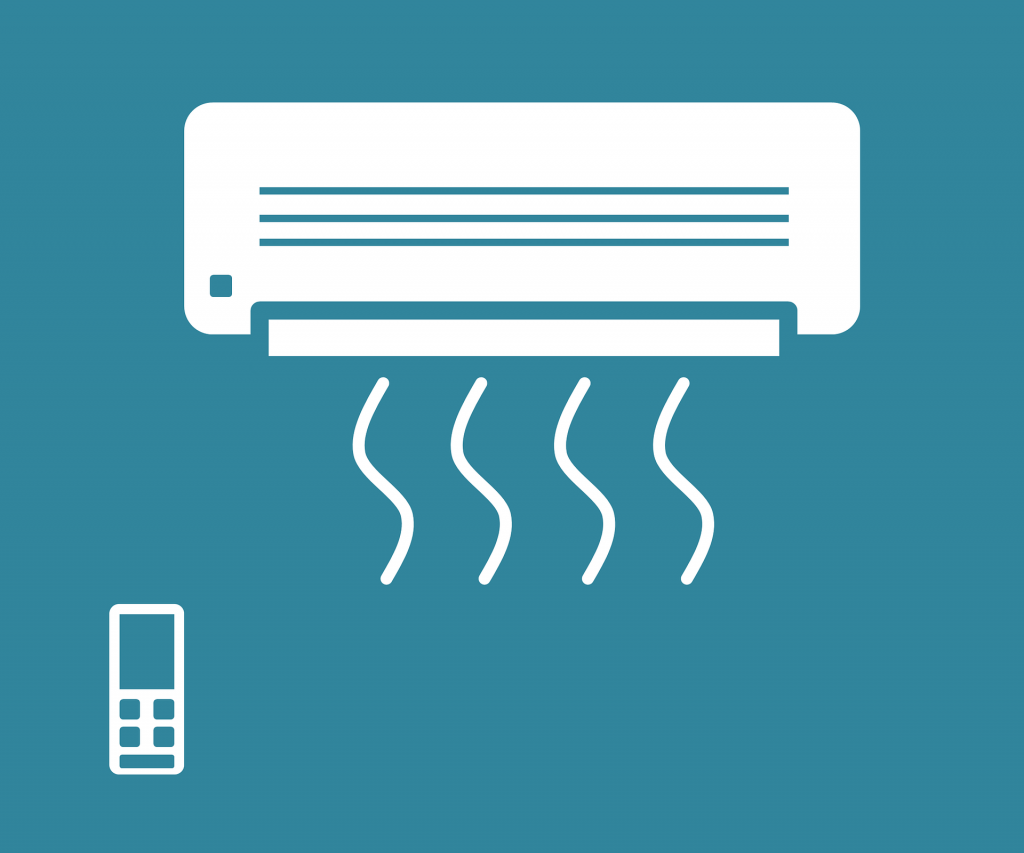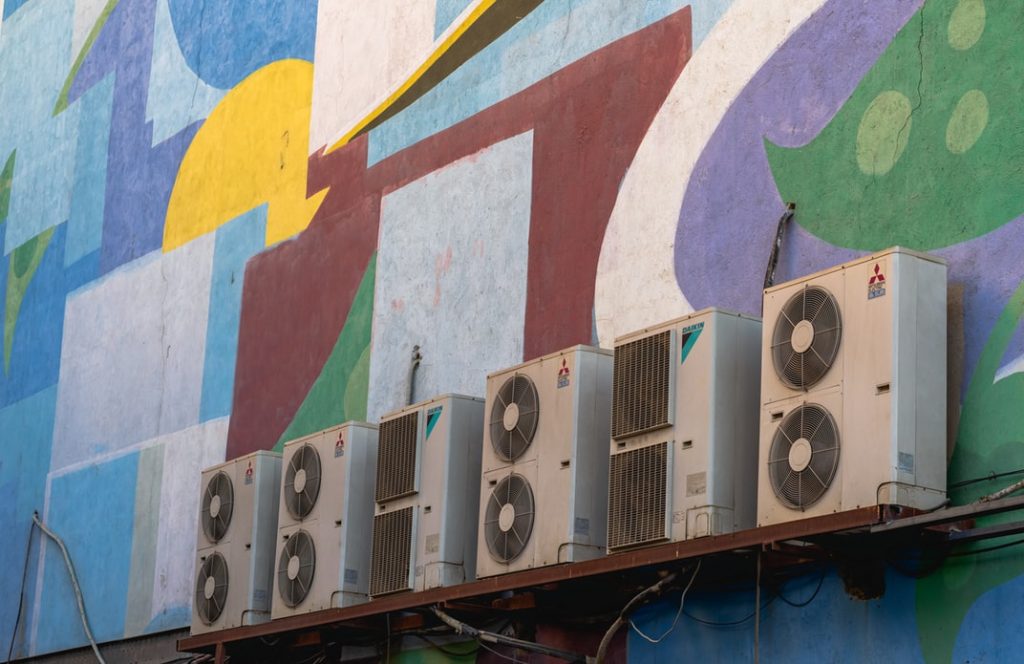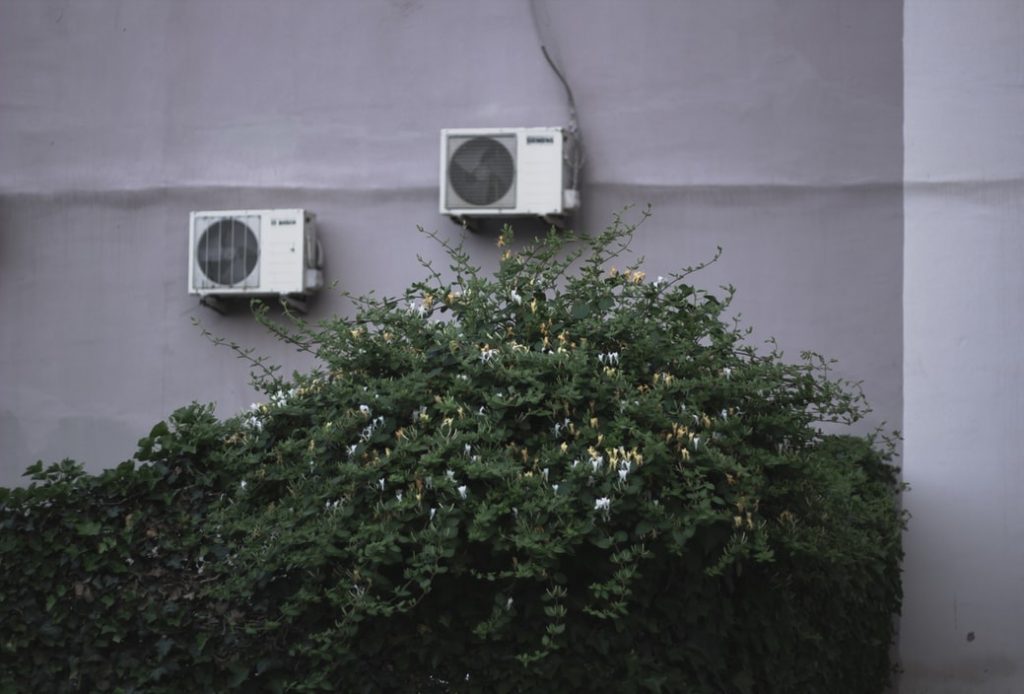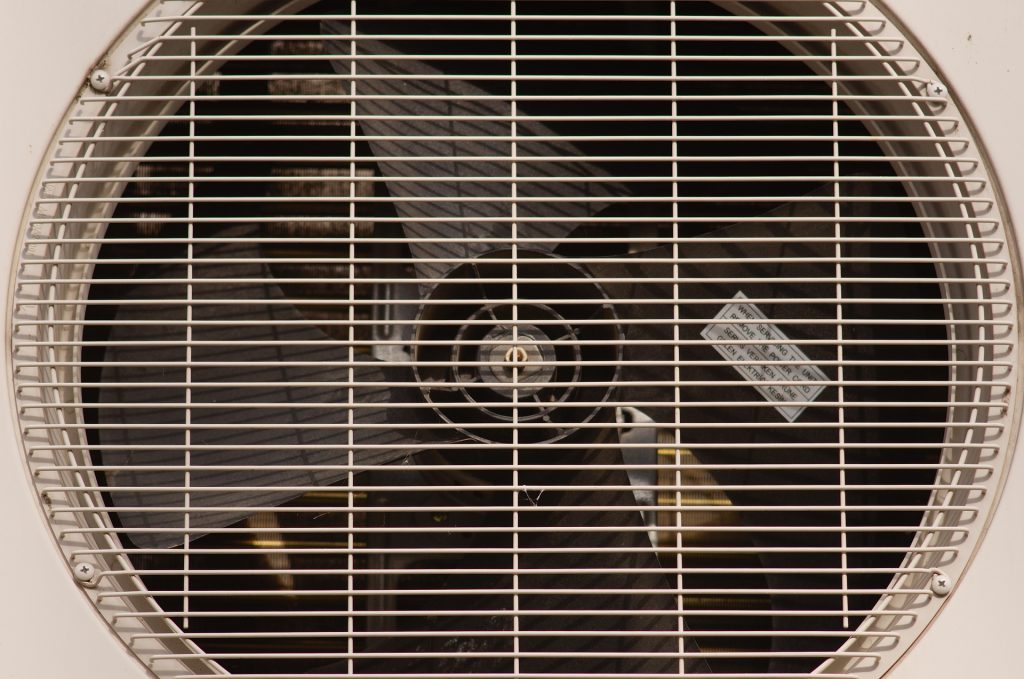Ductless air conditioners can be a tempting proposition, particularly for homes without existing ductwork. In this post, we’ll discuss ductless units in great detail to help you figure out whether they’re the right cooling solution for your home.
What Are Ductless Air Conditioners?
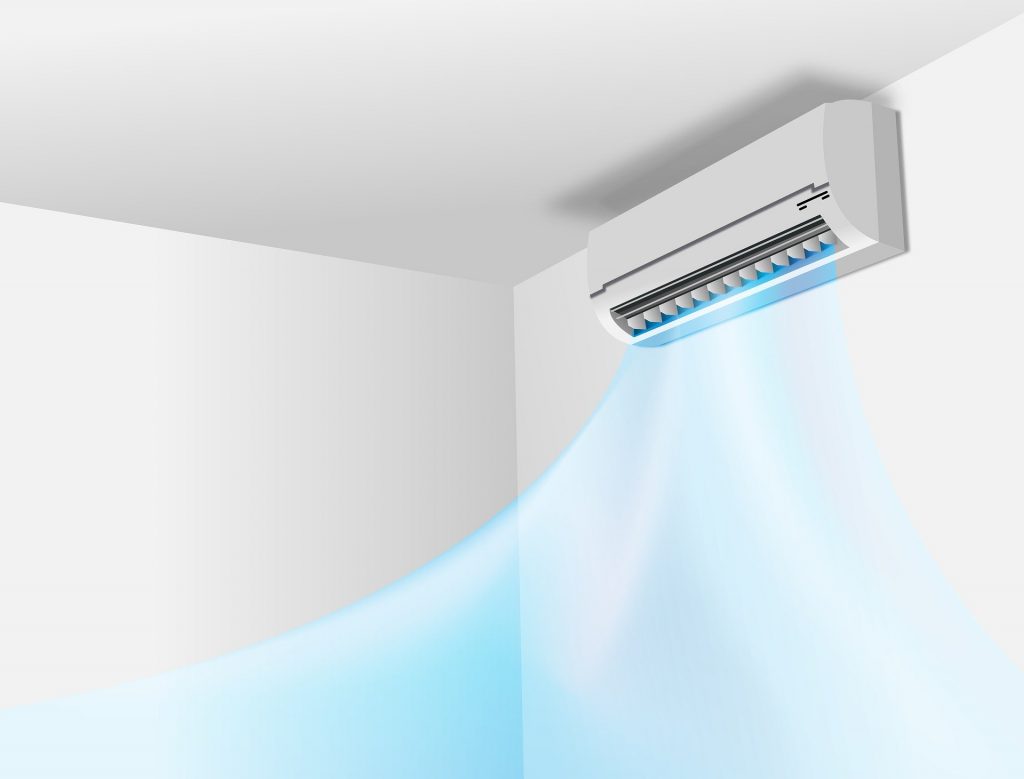
There are a few basic types of air conditioners. Ductless units (also often referred to as “mini-split”) consist of two components: an external condenser and at least one interior evaporator. In layman’s terms, the condenser is what draws air into the unit while the evaporator passes it through to cool your home’s interior.
In some ways, ductless air conditioners are similar to central units. But while they both have outdoor units, a central air conditioner relies on your home’s ductwork to transport air from the evaporator to various registers (also known as vents) throughout your home. Ductless air conditioners, meanwhile, rely on what’s known as a “conduit.” This is a thin cable that passes electricity, heat, moisture, and refrigerant between the external and internal units. The cable runs through a relatively small hole in your wall, negating the need for ductwork.
Read more about the difference between central and ductless air conditioners here.
Ductless Air Conditioners: Pros
#1. No Ductwork? A Ductless Unit Will Be Cheaper To Install
As we discussed in this article, it can be quite costly to install ductwork in a home that doesn’t already have it. Drilling through the wall AC installation should be done by the professionals. On average, ductwork can add as much as $3,300 in installation costs but possibly much more if you live in an older home.
Ductless air conditioners, as their name would imply, work without the need for ducts. Installers will just make a two-inch hole in your wall to pass the conduit through.
#2. Easy Zoning
It’s not uncommon to require different temperature settings in various parts of your home. Because each area/room gets its own evaporator, this is a breeze with ductless air conditioners. A single exterior unit typically allows for as many as four evaporators, which should be enough to properly zone the average family home.
Just think of the possibilities here. While air conditioners in Phoenix and other southwestern cities typically need to run intensely throughout the summer, some in your house might like it cooler than others. Rather than fighting over the thermostat or alternating between opening windows and keeping the air conditioner running, just use your ductless system’s zoning capability!
#3. Energy Efficiency
Air conditioners use a lot of power, which equates to major expenses during the summer months. Even the best ductwork can spring leaks over time, which means some of that energy gets wasted. Ductless systems are more direct in that air passes directly from the evaporator into your room, with little opportunity for loss due to leaky ducts.
As an aside, ductless air conditioners can also be advantageous if someone in your home suffers from asthma. Allergens can occasionally make their way into ductwork, contaminating the air that passes through it. In this situation, you’ll find much cleaner and more direct air with a ductless unit.
#4. No Need To Repair Ductwork In The Future
Ductwork isn’t just an “install it once then forget it” thing. You’ll occasionally have to check on and repair it as needed, which is an added thing to worry about and potentially spend money on as part of your air conditioner maintenance.
Ductless AC Units: Cons
#1. Upfront Cost
Ductless air conditioning can be significantly more expensive than a central unit depending on how many evaporators and condensers you need. In a smaller home, this is unlikely to be the case. Once your home gets too big for however many evaporators your condenser can handle (the average is four, as mentioned earlier), the costs add up fast. That’s why the cost of a ductless air conditioner falls within such a wide range: $2,000 to $14,500.
Before you settle on a ductless air conditioner, make sure you run the numbers and see if a central unit might represent better value.
#2. Aesthetics
A ductless air conditioner requires wall-mounted evaporators that can be bulky and disruptive to your interior design. There are some ways you can hide an air conditioner but these can only do so much. You’ll always have something bulky on your wall.
#3. More Filters To Clean
Cleaning air conditioner filters is an oft-neglected task that can have serious impacts on your unit’s performance and your health. Each evaporator in a ductless system has its own filter, which needs to be cleaned or replaced on a monthly basis. This differs from central air conditioners, which have just one filter you need to take care of. That’s why it’s essential to know how to clean AC filters for different types of air conditioning systems.
Who Is Ductless Air Conditioning Ideal For?
Now that you know the pros and cons of a ductless AC, let’s discuss the situations in which they’re a good fit.
- When ductwork would be prohibitively expensive to install, go ductless.
While adding ductwork to your home can increase its value, this may not always make sense depending on your financial situation. You won’t recoup 100% of the costs when you resell so installing ductwork as an investment may not make sense unless you’ll be staying in your home long enough for the installation to pay for the difference.
- When you’ve designed a new addition to your home.
Air conditioners should always be carefully sized to suit the area that needs cooling. If you add an extension to your home (new garage, room, etc), the cooling solution for it won’t be as simple as adding some extra ductwork and vents. Doing so may cause airflow problems depending on the circumstances. Instead, you can install a ductless unit to service that new part of the house. When you replace your central air conditioner, you can get a larger one and install additional ductwork at that point if you so desire.
- When zoning is a must.
If you constantly need different temperatures throughout your house, a ductless air conditioner is a very easy solution. It’d often be much more expensive to achieve this with a central air conditioner (although the technology is developing rapidly).
Frequently Asked Questions
How much does it cost to install a ductless air conditioning system?
Ductless air conditioning systems cost between $2,000 and $14,500 on average. Most people spend about $3,000 unless they have a particularly large home and need more evaporators than a single condenser can handle.
Are ductless AC units more efficient?
Ductless AC units can be more efficient due to the lack of ductwork, which can cause some air leakage. They also typically come with variable-speed fans, which is a feature you’d have to seek out with central air conditioners.
Are ductless air conditioners worth it?
Ductless air conditioners are worth it if installing a central air conditioner would be impractical or too expensive. The most common scenario is a home that lacks ductwork, which can cost $3,300 or more to install.
Do I need a permit for ductless AC?
Depending on the installation’s complexity, you may require a permit for the electrical and structural work. A good HVAC contractor should be able to help you source this.
Can I install a ductless AC myself?
If you’re handy with tools, you can install your own ductless AC over the course of about a weekend.
Do you need a mini split in every room?
Not necessarily. You can create zones or simply place the evaporators in central living areas.



